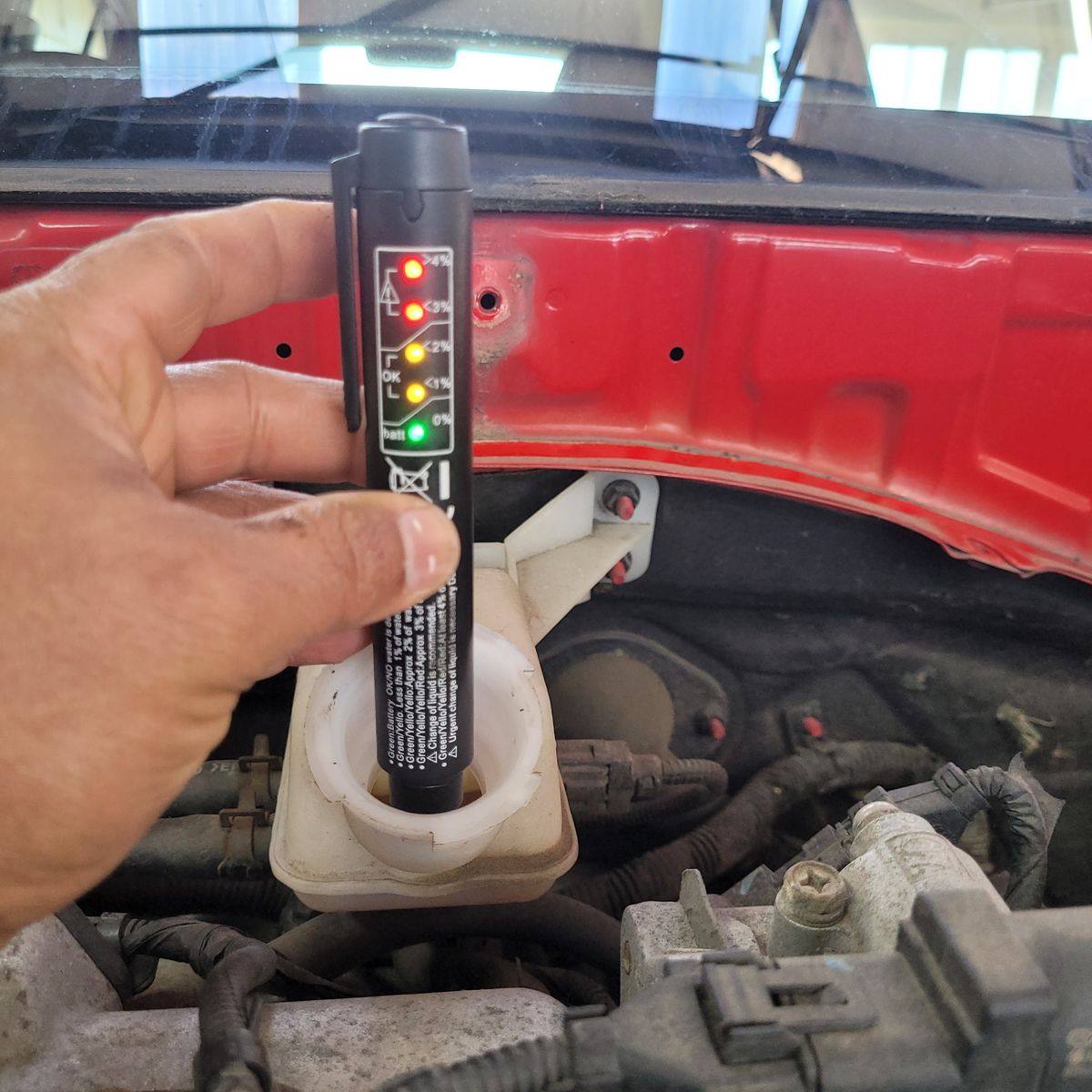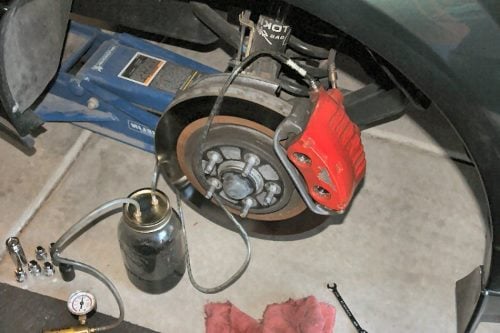Why is brake fluid important?
Brake fluid is a vital fluid which allows your brakes to function properly. It is a hydraulic fluid, which means it cannot be compressed. This means it can transfer force into pressure, which allows your braking system to work properly.
When the brake pedal is pressed, the brake fluid is used to create hydraulic pressure. This pushes the brake pads against the rotors and causes your car to slow down or stop.
Learn more about how brake fluid works
Without brake fluid, your braking system will not be able to generate pressure and stop. For this reason, it is important to routinely replace brake fluid and immediately repair any leaks that occur. Old or leaking brake fluid can affect the safety of your vehicle and increase your stopping distance, increasing the likelihood of accidents occurring.
How often should brake fluid be replaced?
Over time, brake fluid can lose its hydraulic properties. This is due to air, water and other contaminants that can find their way into your brake lines. For this reason, it is important that your car’s brake fluid is routinely changed.
Although different manufacturers will have different recommendations, most cars will be every 2 years or every 40,000 miles (24,000 miles), whichever comes first. However, it’s important to check your vehicle manufacturer’s recommended maintenance schedule, as some manufacturers may recommend more frequent brake fluid changes.
Symptoms of brake fluid due for replacement:
- Brake fluid is a brown or black colour – As brake fluid ages, it can become contaminated with dirt and debris, which can cause it to look dirty or discolored. If you notice that your brake fluid is no longer clear or has a dark color, it’s a sign that it needs to be replaced.
- Increased stopping distance – As brake fluid becomes dirtier, it will slowly lose its ability to slow your car down. If your car is taking longer to stop than normal, we recommend that you examine the brake fluid.
- Spongy brake pedal – Over time, brake fluid can absorb moisture from the air, which can cause the brake lines to become corroded and the brake fluid to become less effective. This can result in a spongy or unresponsive brake pedal, which is a sign that the brake fluid needs to be replaced.
- Burning smell – When the brake fluid loses its hydraulic properties, it can create a burning smell when the brakes are applied.
- Warning lights – Some modern vehicles have warnings or dashboard lights that indicate that the brake fluid is due for replacement.
Brake fluid leaks – how to detect
Brake fluid leaks can be caused by a variety of factors, including damaged brake lines or hoses, a faulty master cylinder or brake caliper, or a leaking wheel cylinder. When a brake fluid leak occurs, it can cause your braking system to become a lot less effective, affecting the safety of your vehicle.
Brake fluid leaks can be detected by:
- Small puddles of yellowish fluiud appearing under the vehicle
- Low levels of brake fluid in the brake fluid reservoir
- Several of the symptoms of old brake fluid mentioned above – such as increased stopping distance, burning smells, and warning lights.
If you suspect that your car has a brake fluid leak, it’s important to have your vehicle inspected by a mechanic. They will be able to identify the source of the leak and recommend the necessary fixes to ensure that your brakes are functioning safely and effectively.
Brake Fluid Replacement in Hamilton
Is your car in need of a brake fluid flush, replacement or leak repair? If so, we can help! At Grimmer Motors, our team of experienced mechanics can remove dirty or old brake fluid from your vehicle and replace it with new fluid. We can also locate and repair brake fluid leaks.
Healthy brake fluid will allow for safer driving and improved stopping distance. So what are you waiting for? Contact Grimmer Motors today for brake fluid replacement and flushing.


